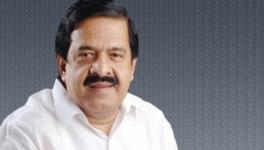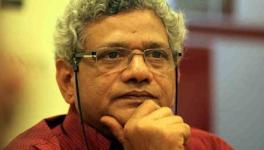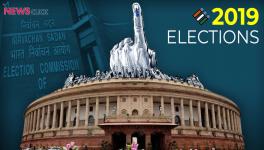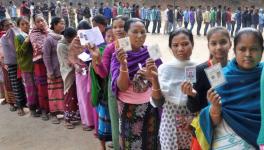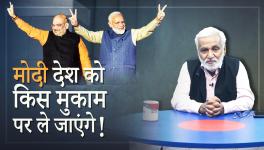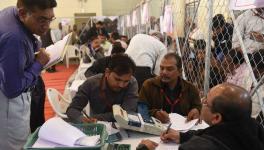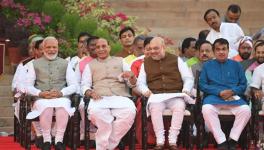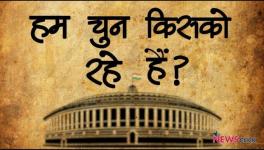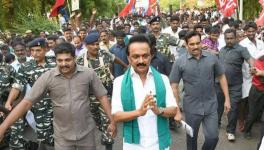Social Media’s Influence Not Crucial in 2019 Voting Choices: CSDS Study
The role of social media as a key influencer ahead of the recently concluded Lok Sabha elections is an over hyped argument, reveals the report by Centre for Study of Developing Societies (CSDS). Unlike in 2014 Lok Sabha elections – when the Narendra Modi-led Bharatiya Janata Party had dominated the conversation and aced the social media game – Congress, along with other parties, had upped their game on social media, this time.
The report titled ‘Social Media and Political Behaviour’ analyses the relationship between social media usage and voting behaviour; it shows for most voters, the main source of political news is television followed by newspapers. Only 3% said that their main source of news was social media.
Though the BJP’s social media advantage over Congress declined, when compared to 2014, its lead among those who do not use social media widened. In 2014, 43% people who use Facebook on daily basis opted for BJP and only 16% had gone for Congress. When it comes to 2019, 20% from this group opted for Congress and 41% voted for BJP. But if we look at the number of people who have never used Facebook, 36 % voted for BJP this time, against 30% in 2014. Congress’s base among this has marked a decline of 20% this time against 23% in 2014.
“When we compare the performance of the BJP and the Congress among Twitter and Facebook users in 2019 with their performance among the users of these platforms in 2014, we notice that the greatest gains made by the BJP were among those who did not use these two platforms at all compared to those who did,” the report says.
Read More: How Social Media Influence Political Preferences and Electoral Outcomes in India?
The impact of social media exposure on BJP’s vote was not uniform across castes. Among the upper castes, whether they have exposure to social media or not, BJP has a clear upper hand. While we find a strong correlation between social media usage and vote for the BJP among upper castes and Adivasis, we do not find a similar relationship among Dalits and OBCs. But, among Muslims, Congress has a clear edge.
The study clearly shows that the information which users gather through social media helps them form fresh opinions, apart from reinforcing the beliefs they already hold. Four in every five respondents who had a high exposure to social media claimed to have heard about the slogans ‘Chowkidar chor hai’ and ‘Main bhi chowkidar’- the campaigns resorted by Congress and BJP respectively. While, one in every two who were not exposed to social media, was found to have no knowledge about these slogans.
When asked about Nyuntam Aay Yojana (NYAY) scheme, one in every two voters who were not using any of the social media apps, could never know about the NYAY scheme. However, people across all sections were aware about the Balakot air-strikes but the gap between users and non-users of social media was found to be more than 20%.
Though “hate speech and anti-minority bashing on online social networks and apps is growing, and is very much a reality, we do not find much evidence from our survey that indicates that this constant bombardment of communal propaganda may have impacted people’s opinions towards minorities adversely,” says the report.
Read More: WhatsApp Mass Messaging and NaMo TV: BJP Bending or Breaking Election Rules?
Voters with high social media usage were more likely to believe that Muslims are nationalist and also that India belongs to all its religions equally (and not to Hindus alone) than voters with no exposure to social media whatsoever. Across all the categories, three-fourth believe ‘India belongs to all religions equally’ and those who believe India to be only of Hindus were between 14 to 17% across all the categories.

Responses of Hindu social media users to the question whether India mainly belongs to Hindus or to all religions equally – by the composite social media index (%)
The data also suggests that regular social media usage may have made people develop strong feelings of like and dislike towards a political party. When voters were asked whether there was any party that they particularly disliked, only 14% or one in every seven of those who were not exposed to social media at all said that they did. On the other hand, among those exposed to social media, the figure was higher at over 20%.
It is also important to note that for a majority of voters, including those on social media, traditional media such as TV and newspapers continue to be the most important sources for getting news on politics. Only 3% of voters said that social media is what they depended on most to get access to political news. Moreover, only one-fourth of social media users in our survey reported using the medium regularly for airing their political views and thoughts, and only one-third said they use the medium for reading political news daily or sometimes.
Read More: How India’s Media Landscape Changed Over Five Years
Get the latest reports & analysis with people's perspective on Protests, movements & deep analytical videos, discussions of the current affairs in your Telegram app. Subscribe to NewsClick's Telegram channel & get Real-Time updates on stories, as they get published on our website.










